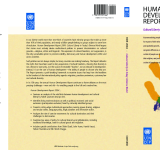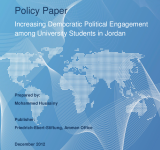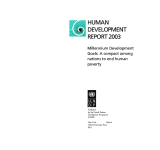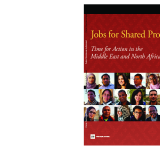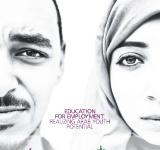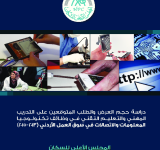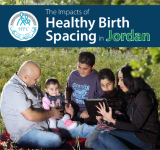education
Accommodating people's growing demands for their inclusion in society;; for respect of their ethnicity;; religion;; and language;; takes more than democracy and equitable growth. Also needed are multicultural policies that recognize differences;; champion diversity and promote cultural freedoms;; so that all people can choose to speak their language;; practice their religion;; and participate in shaping their culture—so that all people can choose to be who they are. In recent years the Human Development Report has argued strongly that this is as much a question of politics as economics—from protecting human rights to deepening democracy. Human development is first and foremost about allowing people to lead the kind of life they choose—and providing them with the tools and opportunities to make those choices. The 2004 Report builds on that analysis;; by carefully examining—and rejecting—claims that cultural differences necessarily lead to social;; economic and political conflict or that inherent cultural rights should supersede political and economic ones. Instead;; it provides a powerful argument for finding ways to “delight in our differences”;; as Archbishop Desmond Tutu has put it. It also offers some concrete ideas on what it means in practice to build and manage the politics of identity and culture in a manner consistent with the bedrock principles of human development.
The purpose of this paper is to examine the issues that are limiting the democratic perception of Jordanian university students' political engagement in university life. The paper defines this issue as being directly linked with both students' freedom and representative bodies. It offers a description of the historical and legal backgrounds associated with students' political participation in Jordanian universities;; and examines the core issues associated with students' political participation. This paper also categorizes the various problems that limit students' participation;; including intervention of security offices in student affairs;; the weakness of student clubs;; and the election mechanisms of student elections. This paper also discusses the absence of a student body that unifies various Jordanian universities;; disciplinary regulations;; university violence;; and the inability to students to express their political thoughts within the university.
This report provides an assessment of the Millennium Development Goals;; laid out by the UN Millennium Declaration. The UN Millennium Declaration was adopted in September of 2000 as a commitment on the part of the world's leading nations to reduce poverty;; improve health and promote peace;; human rights;; and environmental sustainability. The Millennium Development Goals are specific;; measurable targets that aim to reduce extreme global poverty by the year 2015. This report analyzes the challenges and barriers to meeting these goals as of 2003;; examining the successes and failures of various nations and the gaps that exist between regions and countries with regards to economic growth and human development. This report then examines the successes and failures of public and private policies with regards to hunger;; health;; water and sanitation;; education;; and environmental sustainability. This report also analyzes the participation of civil society throughout the world and the mobilization of grassroots support for the various human development goals. Finally;; this report presents a number of recommendations on what countries can do to best support these goals.
Jobs are crucial for individual well-being. They provide a livelihood and;; equally important;; a sense of dignity. They are also crucial for collective well-being and economic growth. However;; the rules and the incentives that govern labor markets in MENA countries have led to inefficient and inequitable outcomes on the personal and collective standpoint. Several underlying distortions prevent a more productive use of human capital and have led to a widespread sense of unfairness and exclusion;; of which the Arab Spring was a powerful expression.
The Arab World faces extraordinary challenges. In a region with the world's highest youth unemployment rate;; millions are frustrated by their job prospects – a frustration born of education that often leaves them unprepared for the marketplace. This report shows that the private sector can be a powerful force for positive change by complementing public efforts to ensure that the region's youth gain the right skills for the jobs being created.
تهدف هذه الدراسة إلى تحديد حجم العرض والطلب المتوقع من خدمات التدريب المهني والتعليم التقني في الأردن في وظائف تكنولوجيا الاتصالات والمعلومات للمستويات خلال الأعوام (20113-2015);; إضافة إلى التعرف على دور التدريب المهني والتعليم التقني في تلبية الطلب على العمالة حسب الجنس والمحافظة والتخصص المهني والمستوى في وظائف تكنولوجيا الاتصالات والمعلومات;; وتحديد احتياجات القطاعات الاقتصادية المختلفة من وظائف تكنولوجيا الاتصالات والمعلومات ووضع التوصيات اللازمة واقتراح السياسات والبرامج اللازمة لتطوير القطاع وتمكينة من خلق فرص عمل جديدة للشباب الأردني.
يعرض هذا الكتيب ادلة تستند الى بحوث عن المباعده الصحية بين الولادات ويقدم مقترحات يمكن للأردن ان يقوم بها في مجالات السياسة والتثقيف والتعليم والخدمات الصحية من أجل تعزيز هذه الممارسة الصحية.

